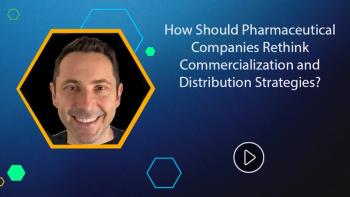
Q&A With Harvard Business School Professor Ranjay Gulati
Why purpose-driven firms are now more important than ever.
In this installment of the Harvard Business School Healthcare Alumni Association (HBSHAA) Q&A series, Michael Wong talks to Harvard Business School Professor Ranjay Gulati about the role of purpose in doing business, and the importance of having initiatives to ensure purpose is embedded in the company.
Wong: Per a recent dialogue captured on the law school’s governance board, with a “... growing view that corporations should take into account environmental, social and governance (ESG) issues in running their businesses, and resistance from those who believe that companies should be managed solely to maximize share price, (it) has intensified the focus on the more fundamental question of corporate governance: What is the purpose of the corporation?”1 From the pandemic to the recent Ukraine crisis, what roles, if any, should companies and their employees be doing to tackle today’s global pain points?
Gulati: It has never been more important for a company to have a clear and understood purpose. As I recently wrote in my new book,2 having a purpose is not a mission statement nor is it corporate social responsibility (CSR); yet several companies still treat it as though it is.
Consider Purdue Pharma, which many consider to be mostly responsible for the devastating opioid crisis given its irresponsible marketing of highly addictive painkillers such as OxyContin. Despite Purdue Pharma declaring its purpose to be “…compassion for patients, excellence in science and inspired by their pursuit of new medicines,” clearly the company’s actions led to purpose-washing. Such actions have given purpose a bad rap and have led some to believe that it is nothing more than a reputation-building exercise.
But others disagree. As Larry Fink, CEO of Blackrock, recently argued, “…no company can achieve its full potential without implementing a sense of purpose into the organization.” Once you buy into purpose then the question is: What is your real purpose?
Once you are forced to think long term, you realize it encompasses an array of stakeholders. So, there is a growing movement among firms and their employees who have decided that the purpose of companies is not just about profits but rather addressing a broader set of stakeholders. And when you serve stakeholders, profits will follow.
Wong: Since the beginning of Fortune’s Most Admired Companies reporting, tech and pharma have dominated the overall rankings, where the nine criteria for selection include social responsibility.3 From your research, teaching, and consulting, what common best practices are shared by these firms and other leading organizations when it comes to creating a purpose-driven group of highly engaged employees?
Gulati: Whether purpose and profit can go together remains an empirical puzzle that many researchers are trying to tackle. But based on my extensive research, I can say with confidence that there seems to be a connection, especially for those companies that go deep on purpose. To unpack this connection, let me share a four-pronged framework that shows precisely how a company’s pursuit of deep purpose can deliver sustainable superior business performance.4
Directional—First, purpose guides a company’s growth. One company I studied, Bühler, proactively sought to slash waste, energy, and water usage at its clients’ plants, which unleashed deeper partnerships and focused its innovation efforts. The firm’s reimagined purpose, formalized in 2010 under the slogan “Innovations for a Better World,” was able to build upon a long history of tapping into technological advances for innovation.5
With a daily focus under this mantra, by 2020, the firm announced a five-year strategy which included the goal of reducing energy, waste, and water in Bühler customers’ value chains by 50% by 2025. The firm directed its R&D and open innovation partnerships toward these targets. Moreover, it emphasized its triple-bottom approach regarding balancing economy, humanity, and nature and its marketing. And its sales’ teams stressed the win-win of environmental sustainability and cost-savings to its customers.
The results have been Bühler reducing the environmental footprint of its own sites, achieving a 30% reduction in CO2 emissions, 24% in water and 35% in waste compared to 2015. Of equal importance, doing good has not jeopardized the firm’s economic sustainability as “order intake grew by 12.2%” in 2021.6
Relational and Reputational—Second, possessing and communicating a long-term purpose builds trust with clients and partners, and third, boosts the reputation of firms. Since becoming CEO of Best Buy in 2019, Corie Barry has connected the firm’s business purpose to “enrich lives through technology” with the company’s social goals of “continuing to drive those initiatives/progress that reflect the society that Best Buy wants to see in 20 years.” By creating teams that were empowered to produce innovative ideas (like new recycling engagement models with consumers), the firm has been able to achieve its social goals while still delivering on its revenue remits. During Barry’s tenure, revenue has grown by 10.3% ($42.8 billion in 2019 to $47.2 billion in 2021).7
Motivational—Finally, as Starbucks’ Kevin Johnson shared with me, building a corporate culture that is grounded in a clear purpose which is supported by daily actions, especially during tough times, can raise employees’ motivation and engagement. Specifically, Starbucks has built an emotional connection among its employees internally and externally with its customers. Starbucks was founded on the belief that its purpose was more than just profits. Whether it be providing healthcare coverage or college education support, or most recently, paying for salaries during the pandemic, the company’s actions have taken place during both good and bad times, clearly separating itself from other companies that often have a convenient purpose, one that is only supported if the efforts are easy.
While having this playbook framework has the potential to guide C-suites, I will share my observations that for several purpose-driven companies, when the going gets challenging, most unfortunately revert to a profit-first strategy.
Ranjay Gulati is a professor at the Harvard Business School and author of “Deep Purpose: The Heart and Soul of High-Performance Companies.” He holds a PhD from Harvard University, a master's degree in management from MIT’s Sloan School of Management, and two bachelor’s degrees, in computer science and economics, from Washington State University and St. Stephen’s College, Delhi, respectively.
Michael Wong is an emeritus board member of the Harvard Business School Healthcare Alumni Association.
References
- Lipton, Martin, Savitt, William, and Cain, Karessa L., “On the Purpose of the Corporation” Harvard Law School Forum on Corporate Governance, May 27, 2020
- Gulati, Ranjay, Deep Purpose: The Heart and Soul of High-Performance Companies, HarperCollins Publishers, Feb. 8, 2022
- Per the 2022 reporting, Apple secured the No. 1 most admired firm for a record 15 consecutive years. Earlier No. 1 ranking streaks included Merck’s (seven years) and IBM’s (four years).
https://fortune.com/worlds-most-admired-companies/ https://www.charterworks.com/deep-purpose-ranjay-gulati/ - Gulati, Ranjay, Wohlgezogen, Franz, Sen, Malini, Bühler: Mobilizing Industry Around A Common Purpose, Harvard Business School, Feb. 1, 2021
- Bühler, 2021 Annual Report,
https://www.buhlergroup.com/content/buhlergroup/global/annual_report/annual_report_2021/group/business-review.html - Best Buy 2021 Annual Report,
https://s2.q4cdn.com/785564492/files/doc_financials/2021/ar/Best-Buy_Annual-Report_FY21.pdf - Gulati, Ranjay, “The Messy but Essential Pursuit of Purpose,” Harvard Business School Press, March-April 2022
Newsletter
Lead with insight with the Pharmaceutical Executive newsletter, featuring strategic analysis, leadership trends, and market intelligence for biopharma decision-makers.




